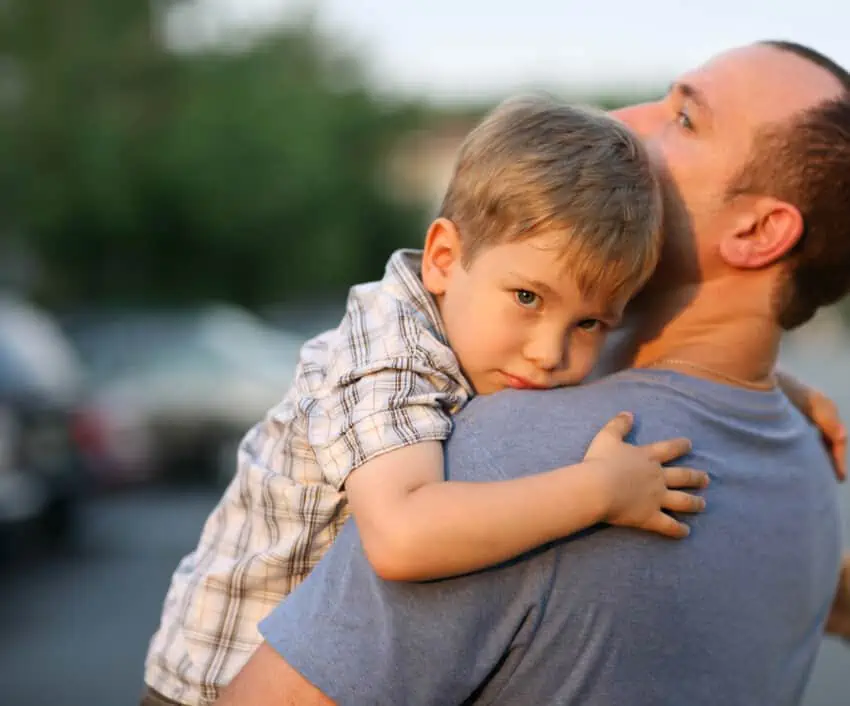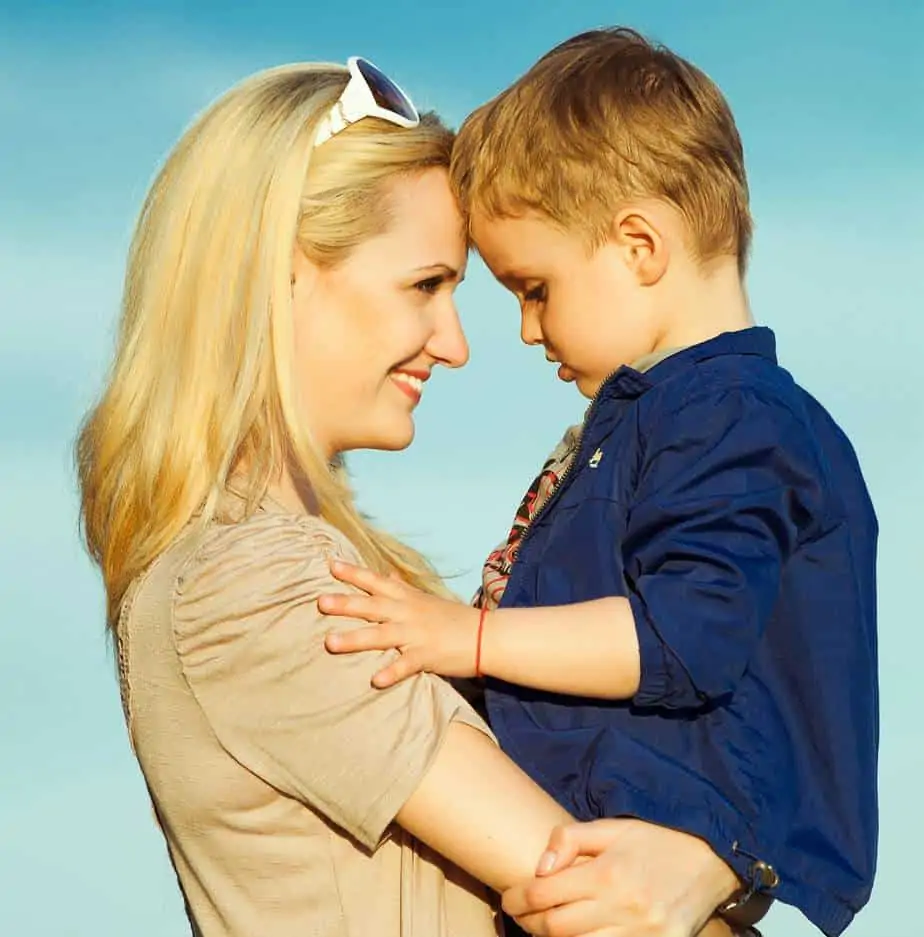Inside: A shy kid needs a little more help navigating new situations and meeting new people. Give them the right support and help with these tips!
How To Support A Shy Kid
As a parent, we want to see our children succeed in every way. We want to see our kids with hoards of friends, a million interests they’re great at, and experience genuine happiness when they start the day and get out of the house. But if you have a shy kid, it can be harder to see them finding that joy in everyday life.
Being shy as a kid is very common as we learn to step away from our parents and home. Being out and on your own is a scary thing! But learning to be social and do things on your own is also essential to the development of a child and growing up.
Here are some tips to help your child break out of their shell—without pushing them straight into the deep end—to support your shy kid and increase their confidence.
What is Shyness?
Shyness is when you have feelings of fear or extreme discomfort in social situations. In children, it’s a very common emotion when they’re amongst strangers or in brand-new situations. Most people also associate shyness with a feeling of self-consciousness.
Shyness will vary in severity. For instance, most people will feel a level of discomfort in social situations, which is easy to overcome. Meanwhile, others have an extreme fear of social situations. This is when it prevents you from speaking and interrupts the ability to form new relationships. Severe shyness can have serious implications, such as anxiety and depression.
It should be noted that having a shy kid is not the same as having an introverted kid. Introverts tend to enjoy their own company and don’t need to be as social to be happy. It doesn’t necessarily mean they have difficulties in social situations and forming new relationships.
What Causes a Child to be Shy?
Many children experience some degree of shyness as they learn to be in new social situations and away from their parents.
Some children can actually have a predisposition to being shy. Around 15% of infants are born with the “shyness gene.” It’s proven that there’s a biological difference in the brain of shy people. So it can be inherent!
Shyness can also stem from parenting. Overprotective parents who do everything for their kids don’t let them experience things independently. The children rely on their parents to handle everything, from ordering from a menu to talking to a doctor on their behalf. These kids aren’t given the room to develop their own social skills.
Sky kids may also be emulating their parents. From a young age, children look to their parents as models of behavior and get many of their interactions from them. So, if a parent shows discomfort talking to strangers, so will the children.
Social interactions at a young age can also have a major influence. Their school, neighborhood, and overall culture can affect how they make their connections.
Negative emotions also play a part. Kids who have experienced neglect, major fear, anxiety, or low self-esteem are likelier to be shy.
How to Help a Shy Child Comfortably Socialize
Getting a shy kid to socialize is essential for their development and success as an adult. Being able to socialize will greatly increase their self-esteem. Without these social skills, it can later result in difficulties at school and their ability to form relationships.
Don’t avoid social events
There’s no doubt that social events are not fun for sky kids. A shy kid may beg you to stay home or cling to your side anytime you’re away from home and interacting with new or unfamiliar people.
However, it’s not helpful to avoid the things they need to be regularly doing. This avoidance can quickly turn shyness into social anxiety.
Instead, schedule these social events in your family calendar. Make sure your child is aware of the event happening so it doesn’t feel like a surprise to them, and they can practice their social skills ahead of time.
With your child, plan questions and talking points. Teach them how to tell anecdotes and stories about what’s going on in their own lives. While practicing conversations, work on listening before contributing to a conversation, and always be curious about what others have to say. Encourage them to talk about what they have in common as an easy starting point!
It’s important to note that some shy kids may tire quickly from loud and busy events. Know their limits and consider starting off with a small amount of time at social events before working your way up.
Teach social skills
Help your child to understand basic social skills. They may feel shy since they don’t know how to interact when talking to new people, and teaching them simple skills can help increase their confidence.
- Eye contact. This is one of the first and easiest things to implement. Just ask them to have eye contact with strangers while they listen. Gradually, they can increase eye contact while they’re talking too.
- Speaking clearly. Ask them to avoid mumbling and to speak clearly and directly to others.
- Open-ended questions. The art of conversation can be difficult to master. Tell them to try and ask questions that start with how or why to keep the conversation going.
- Teach them how to introduce themselves. Remember not to force your child into physical contacts, such as hugs or handshakes. If they feel comfortable enough, they will initiate it on their own.
- Please and thank you. Expressing gratitude is always welcome!
Let your child learn at their own pace. It can be helpful to tackle one of these at a time or to give them gentle reminders when talking to new people.
Embrace their passions
Never push your child to be something they’re not. For instance, a shy kid probably doesn’t want to enroll in singing classes or act in the school play, even if you think it could increase their public speaking capabilities.
Instead, allow them to flourish in an area they’re the most comfortable in. It can help improve their confidence as it’s something they love and are likely good at! Friendships are also easy to form around shared activities and interests.
While it’s a good idea to branch out and try a little bit of something new every once in a while, also remember their limits and go one step at a time.
Be a good role model
Children will always emulate their parents. As mentioned earlier, shyness can be a learned behavior.
Make an effort to listen and show good communication skills. This includes respecting others, showing empathy, modeling confidence, making great eye contact, and having the ability to express emotions.
Become comfortable with failure
A shy kid may fear that others will judge them. Children need to trust their own skills and capabilities while at the same time learning how to handle failure.
Don’t make a big deal about a child’s mistakes. This can instill a fear of disappointing their parents and the need to reach perfectionism. In fact, allow a child to fail. Protecting your child from everything means they aren’t able to do things on their own. Instead, you can help lead them through their own problem-solving and big emotions.
Growth mindset tools help kids navigate negative thoughts and negative self-talk, to build confidence and see themselves through the lens of positive self-worth.
Get out there!
Let them try new things. Kids need to diversify rather than do everything they’re good at. They need to learn to tackle new things and situations. And when it doesn’t go well, encourage them to keep trying.
The effort matters more than any kind of reward. So if they came in third at the spelling bee, it doesn’t mean they can’t try again next year!
Self-love
Teaching self-love is also essential for sky kids. Since low self-esteem is often linked to being shy, they must learn to embrace themselves and all their imperfections. Especially due to social media and what’s seen on screen, this needs to be instilled as young as possible.
After all, imperfection is part of being human!
Show love to your children no matter what. They need to know that whatever happens, you’ll always be there with your love and support. Even if they don’t get good grades or play for a winning team, they need to feel loved. This will encourage their own self-confidence and, therefore, self-love.
The Takeaway
A lot goes into helping shy kids step out of their shells. Overall, offering your support and help is important while letting them take the lead. Encourage them to do things independently and let them know you’re there if they need anything. Let them take everything at their own pace!
Always embrace who they are and focus on their strengths. Praise them for who they are and their efforts, not just the results. Keep these core principles in mind while applying the above tips, and you should see your child slowly come into their own!
It’s also important to remember that this could be an element of their personality. When it’s social anxiety, that’s when it’s a major problem. In this case, psychotherapy can help teach them social skills, uncover the underlying causes of their shyness, and lead them through their own thinking.
More Articles to Help Emotional and Social Growth
- How Love and Parental Affection Affect Child Development
- Parenting Tweens: How to Navigate the Tween Stage of Life
- How To Help Children With Anxiety
- 5 Grounding Techniques for Kids with Anxiety & Big Worries
- The Known (and Unknown) Signs Of Child Anxiety
Want even more?
Shop All Parenting Resources
Shop all of our parenting resources from self-regulation tools and managing big emotions to building self esteem and confidence. There are resources for all seasons of life!









